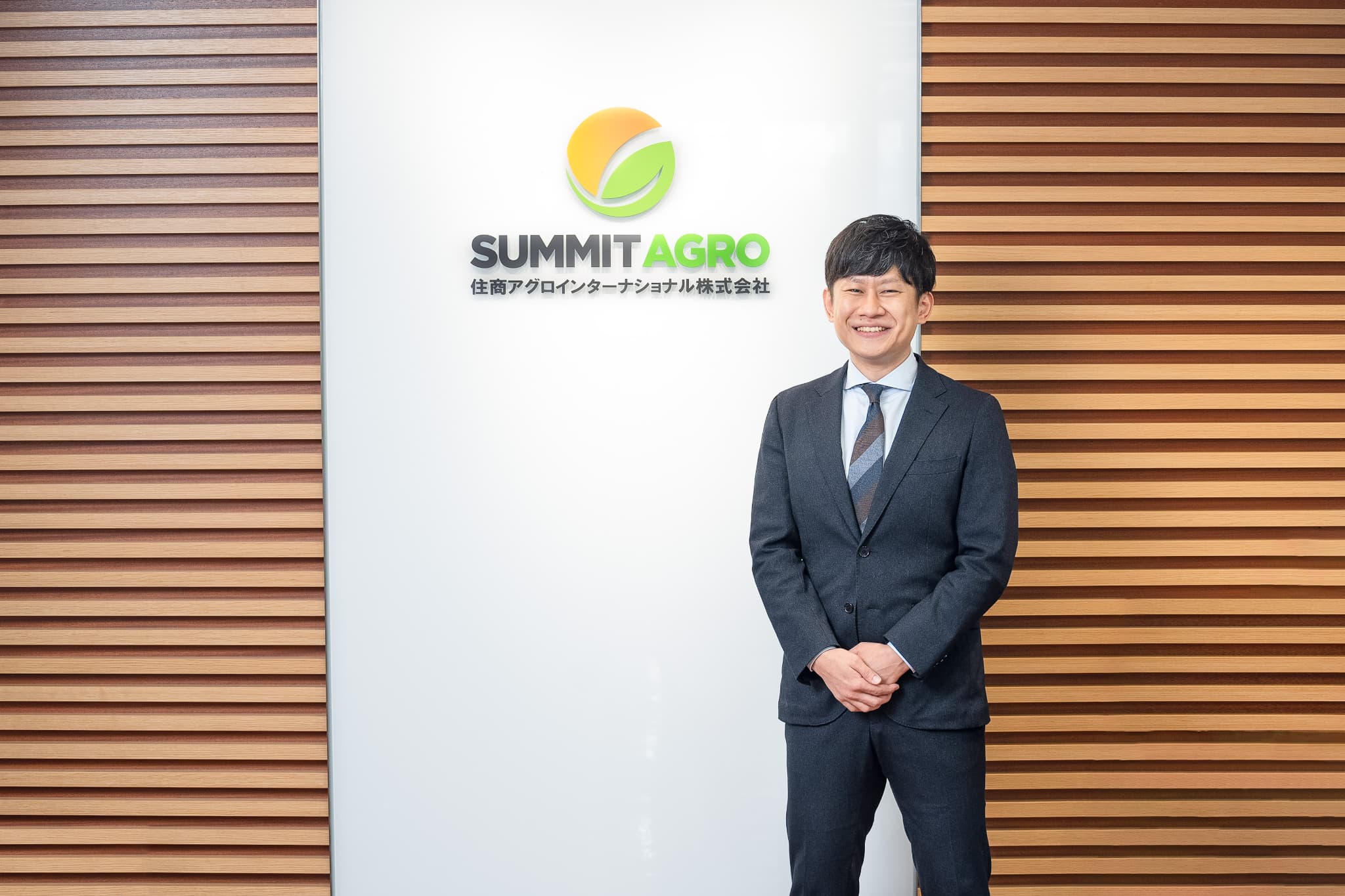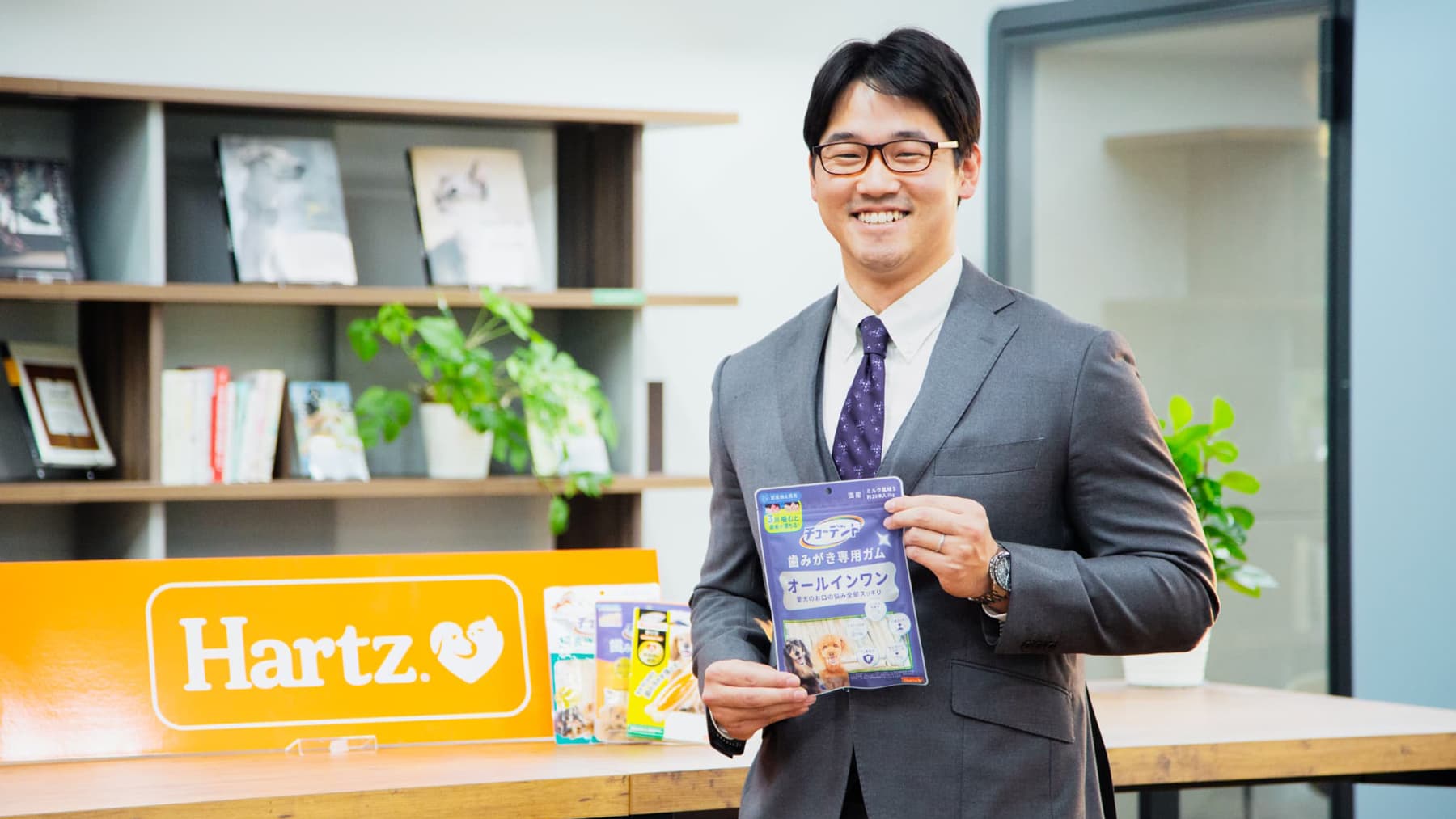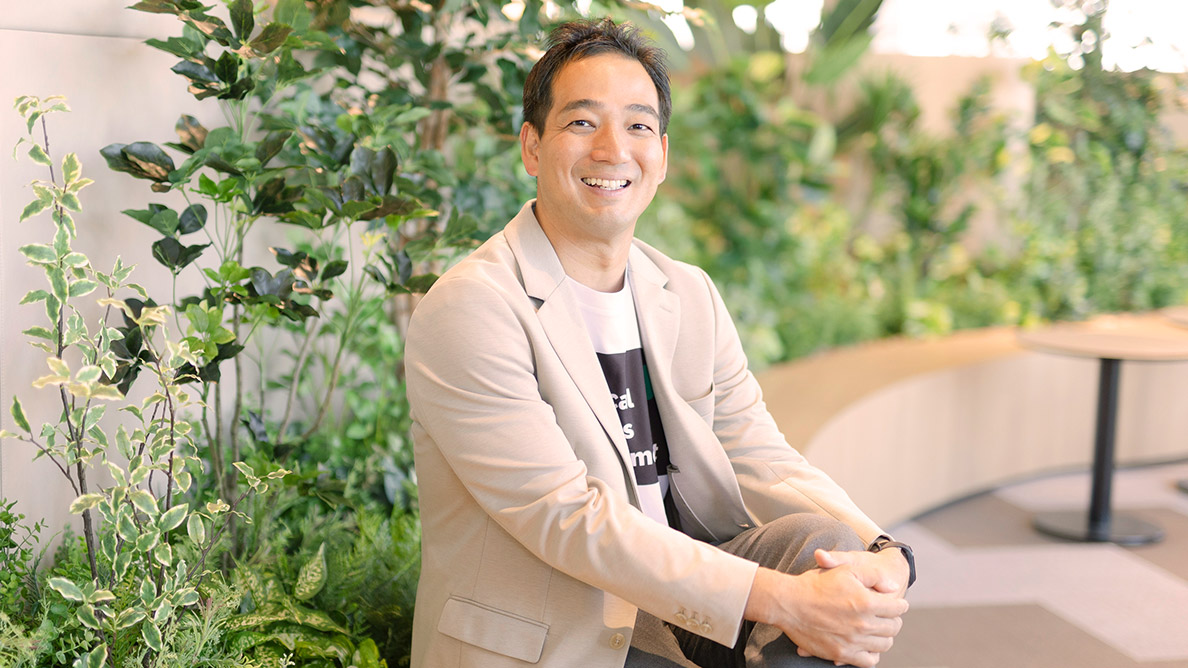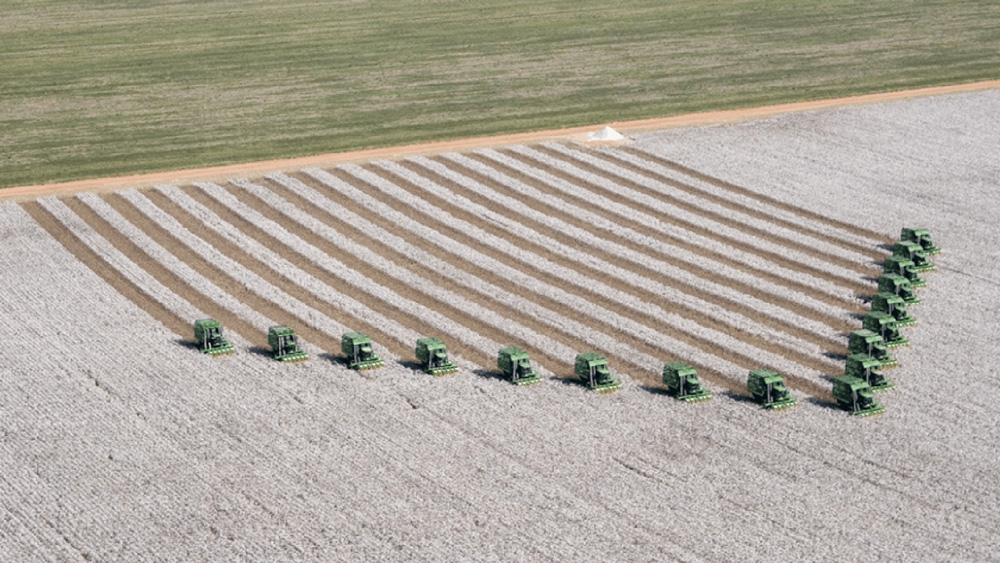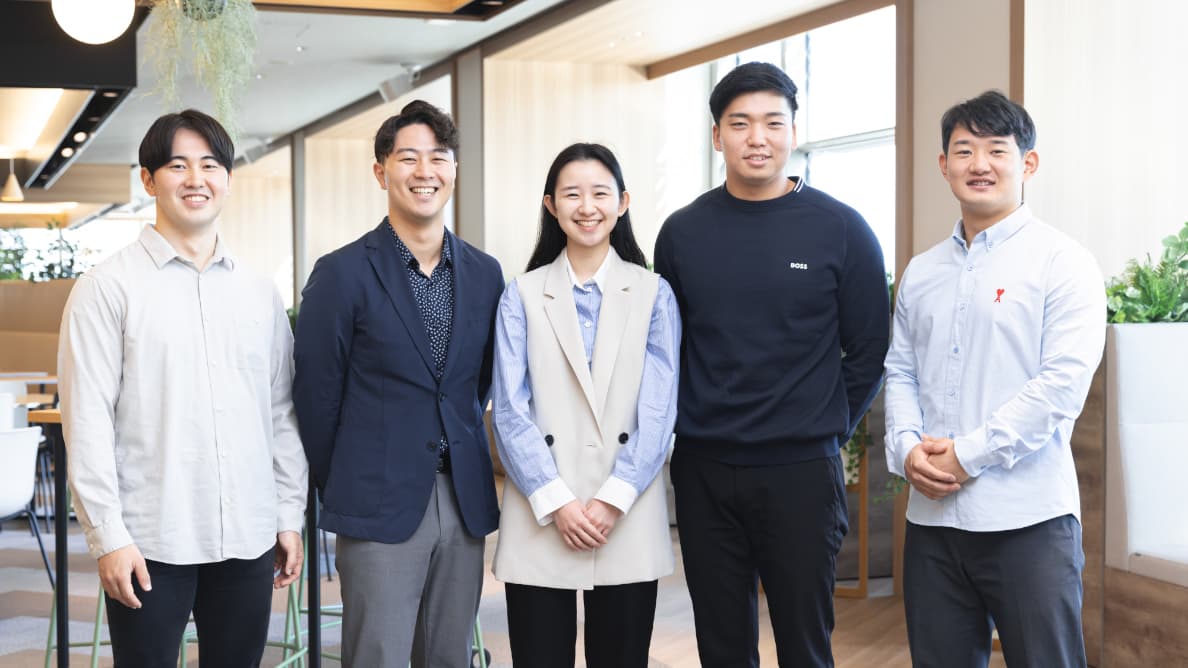
- TOP
- Enriching+TOP
- Envisioning the Future of Agribusiness: Sumitomo Corporation Cultivating Expertise in Agriculture and New Business Planning Worldwide
2025.3.14
Business
Envisioning the Future of Agribusiness: Sumitomo Corporation Cultivating Expertise in Agriculture and New Business Planning Worldwide
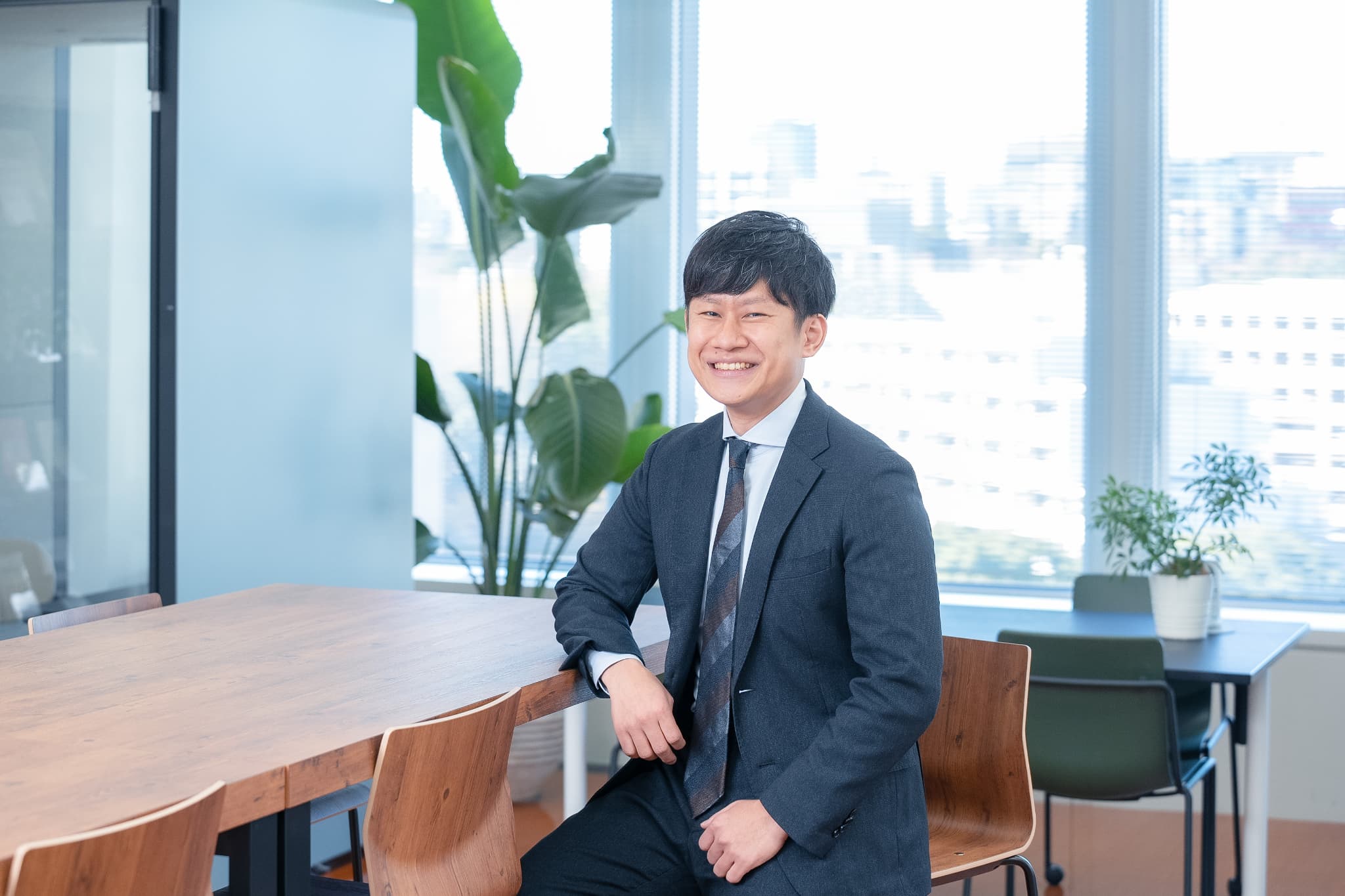
This series features Sumitomo Corporation employees who are honing specialist expertise in different business areas. The second installment focuses on Tomoshige Yamagata, who is expanding scope in the agribusiness (agricultural materials*) sector, from trading activities to product development and business investment. Agribusiness requires knowledge of many diverse agricultural conditions, legal systems and distribution structures across the globe. We spoke to Yamagata about his journey, from walking the fields worldwide to building trust with manufacturers and farmers, and future aspirations for cultivating new business through his experience.
*Materials necessary for agricultural production such as agrochemicals, seeds, fertilizers, etc.
-
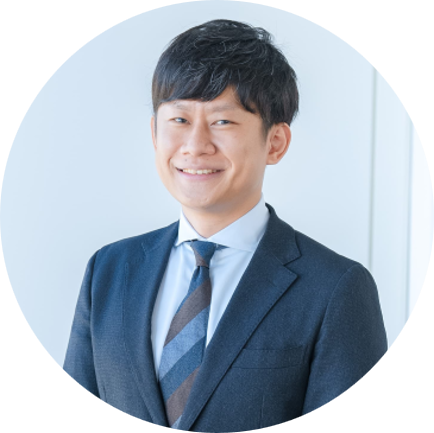
Agri-Business Asia & Oceania Unit (Seconded to Summit Agro International)
Tomoshige Yamagata
Yamagata joined Sumitomo Corporation in 2011 and was assigned to the Agriscience Department. After being seconded to Summit Agro International, Sumitomo Corporation's specialized agrochemicals trading company, he was stationed in Hungary and the United States. Since November 2023, he has been on his third assignment with Summit Agro. As head of the Strategic Business Development Team of the Asia Strategic Business Department, he leads business investment and other initiatives.

Understanding Agricultural Practices in Different Countries and Delivering High-Quality Japanese Agrochemicals Worldwide
Can you tell us about your work at Sumitomo Corporation?
Since joining the company, I've been involved in agribusiness, focusing on agrochemical trade, product development and business investment. During my two previous secondments to Summit Agro International (hereinafter "Summit Agro"), I was responsible for exporting agrochemicals made in Japan. While stationed in Hungary and the U.S., I was the sole employee on secondment and worked with local companies on import and sales operations. Currently, I use the knowledge and experience I gained on-site to support operating companies and engage in new investments.
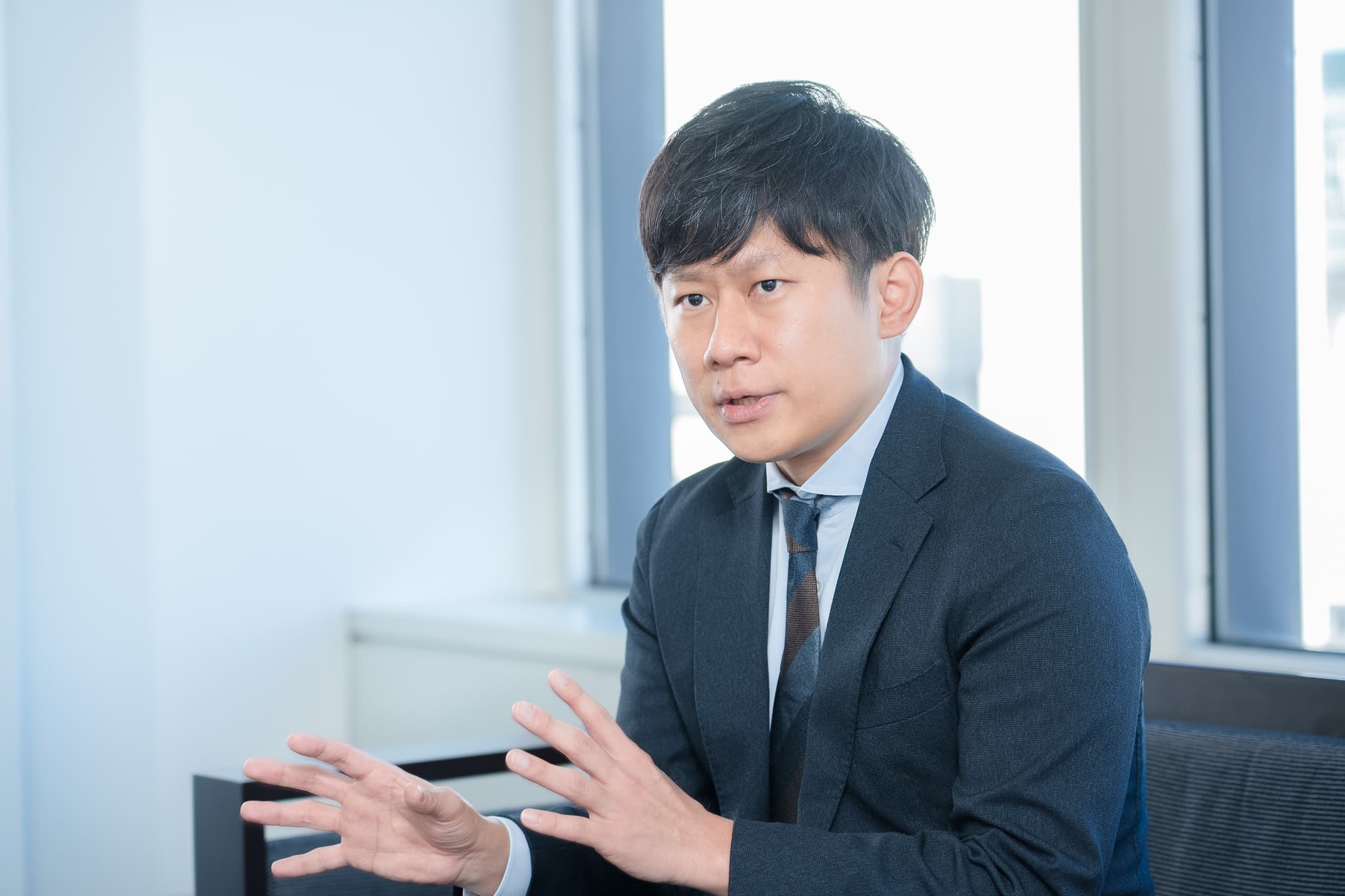
What did your work in the agrochemical trade involve?
In my first secondment to Summit Agro, I was responsible for agrochemical trade to Europe, the Middle East and Africa. In my second secondment, I handled agrochemical trade to North and Central America. I frequently traveled to the countries I was responsible for, using information on the ground to collaborate with Japanese manufacturers, developing and selling agrochemicals tailored to the climate, crops, pests and farming practices in each country. Agrochemical sales require approval and registration in each country, so I also arranged for efficacy tests and safety data in the local markets. Given the large number of countries I was responsible for – around 20 – I would often visit several countries in one trip.
What are some unique characteristics of the agrochemical trade?
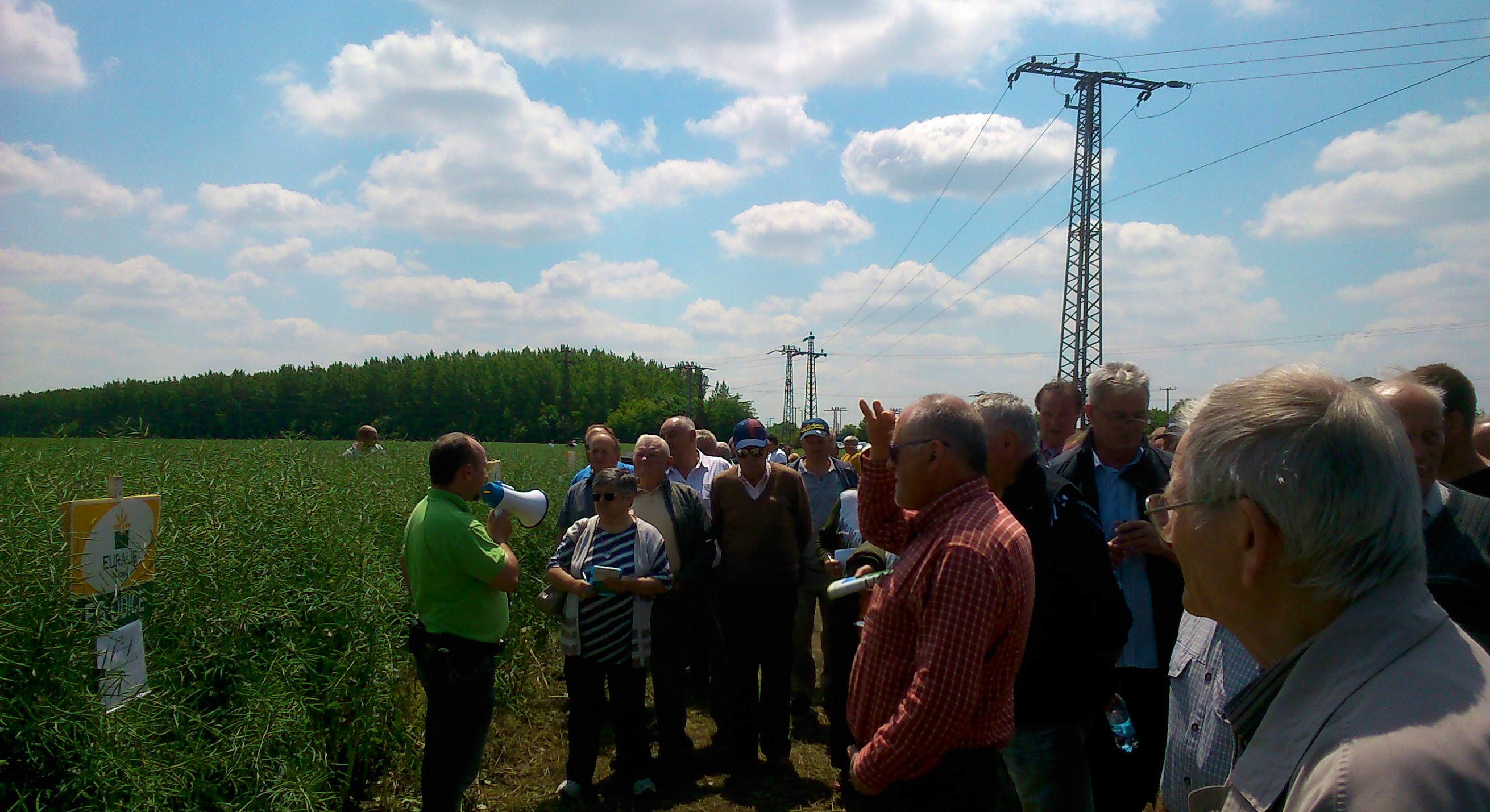
Agrochemicals are "medicines" for plants, so farmers – the consumers for these products – face high barriers when using new ones. It's important to explain the efficacy, safety, novelty and cost of new products carefully to earn trust. We start by conducting trials on small plots of farmland or have influential farmers in each region try the products. Once efficacy was proven, we'd gradually introduce them to other farmers. Marketing efforts were tailored to local weather conditions and farming practices.
What efforts did you make to encourage the adoption of Japanese agrochemicals overseas?
Sumitomo Corporation began exporting Japanese agrochemicals in the 1970s, and today we do business with 90 countries worldwide. However, the process doesn’t end with just selling the products; we also provide after-sales support, which is a key feature of our approach. Together with manufacturers, I frequently visited local markets to conduct "technical outreach activities" where we explained the correct application and effectiveness of different agrochemicals. Japanese-made agrochemicals are highly regarded overseas for their high quality and safety. Current data indicates that around 40% of new agrochemicals developed worldwide originate in Japan. While new products can sometimes be more expensive, if we properly communicate their effectiveness and usage to farmers, they come to understand the benefits and continue using them for a long time.
Commitment to the Field: Speaking Firsthand With Farmers for Primary Source Information
Acquiring the necessary specialized knowledge must have been challenging. How did you accomplish this?
I studied management at university, so initially I didn't have any expertise in agrochemicals or agribusiness. I made it a point to visit as many local sites as possible to learn from farmers and partners.
While manufacturers are more knowledgeable about agrochemicals, I take pride in my ability to come up with ideas based on field experience. For example, even if manufacturers typically develop products for the U.S., they may not have much first-hand information about Europe. To this end, I aim to provide valuable insight from my experience in different markets. The "living knowledge" I gather in the field is valuable to manufacturers. I continue to make a conscious effort to travel overseas and prioritize visiting the fields and farms in rural areas, rather than working only in offices in cities.

What have you learned from being in the field?
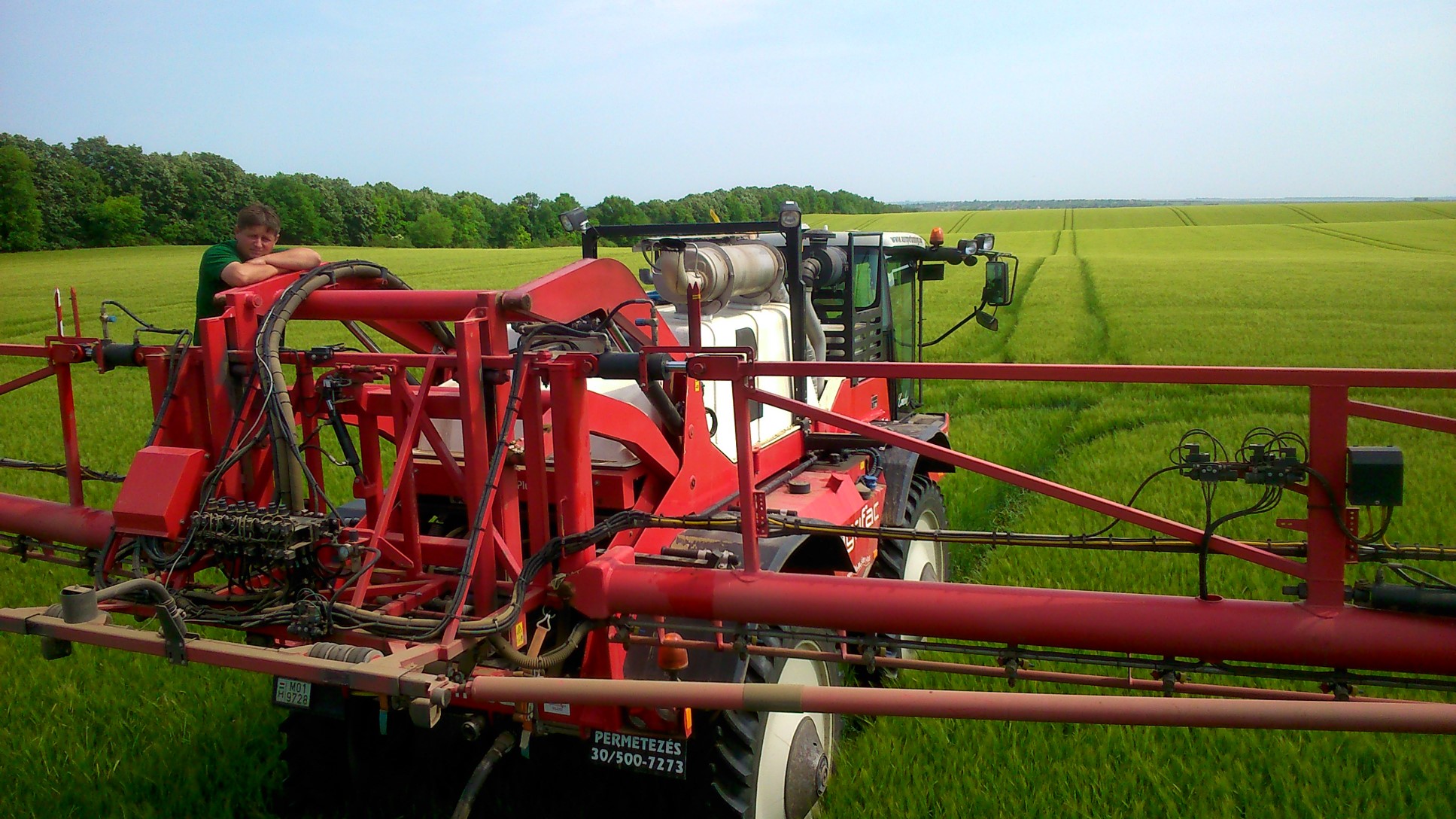
Working in the field allows access to information that you simply can't find online or acquire with money. I realized this during my first year at Sumitomo Corporation on a business trip to Morocco in North Africa. I traveled about 4–5 hours from the capital Casablanca to the countryside, where I introduced a Japanese-made acaricide to local farmers and wholesalers. Initially, I thought the high price of the acaricide was proving a hurdle for them, but after speaking with the farmers, I learned that the issue wasn't the price, but a lack of explanation on the product's efficacy and how to use it. Once we explained how to use the product correctly, many farmers started using it. The manufacturers were pleased, and I realized the importance of connecting people with products, which is the essence of a trading company's work. It was a valuable experience that taught me "needs and bottlenecks exist in places we don't always expect."
It must be challenging to adapt to the differences across countries.
Certainly. Every country has different climates, crops, pests and farming practices. But as I accumulated information on my travels, I began to recognize certain patterns. Even when encountering a new issue, I realized I was maintaining a sense of familiarity. I was able to explain to farmers or manufacturers that "this is how we handle it in other countries" or "we use this agrochemical in regions with similar climates." This allowed me to engage in discussions on an equal footing with manufacturers, customers and farmers – and gain their trust.
The Evolving Role of Trading Companies: Global Market Hubs Strengthening Agribusiness
What kind of work are you engaged in at the moment?
Since November 2023, I've been part of the newly established Asia Strategic Business Department at Summit Agro International, where I'm responsible for revitalizing business within the region and driving new investments. I'm particularly focused on supporting business growth of operating companies in India and Vietnam. One of my most memorable experiences recently was our investment in Hop Tri Investment Corporation, a leading company in Vietnam's agricultural materials industry, in October 2024.
Initially, we were considering the deal structure that the Vietnamese founder-owner preferred, but based on my market experience, I suggested a different approach. Negotiations almost broke down as we were stuck on different pages, but I truly believed my proposal was ideal, so I persevered. Through many more rounds of dialogue, ultimately we successfully concluded the contract. The company changed its name after the investment, and I felt a sense of pride when I saw the new logo on the office that I had visited so often during negotiations.
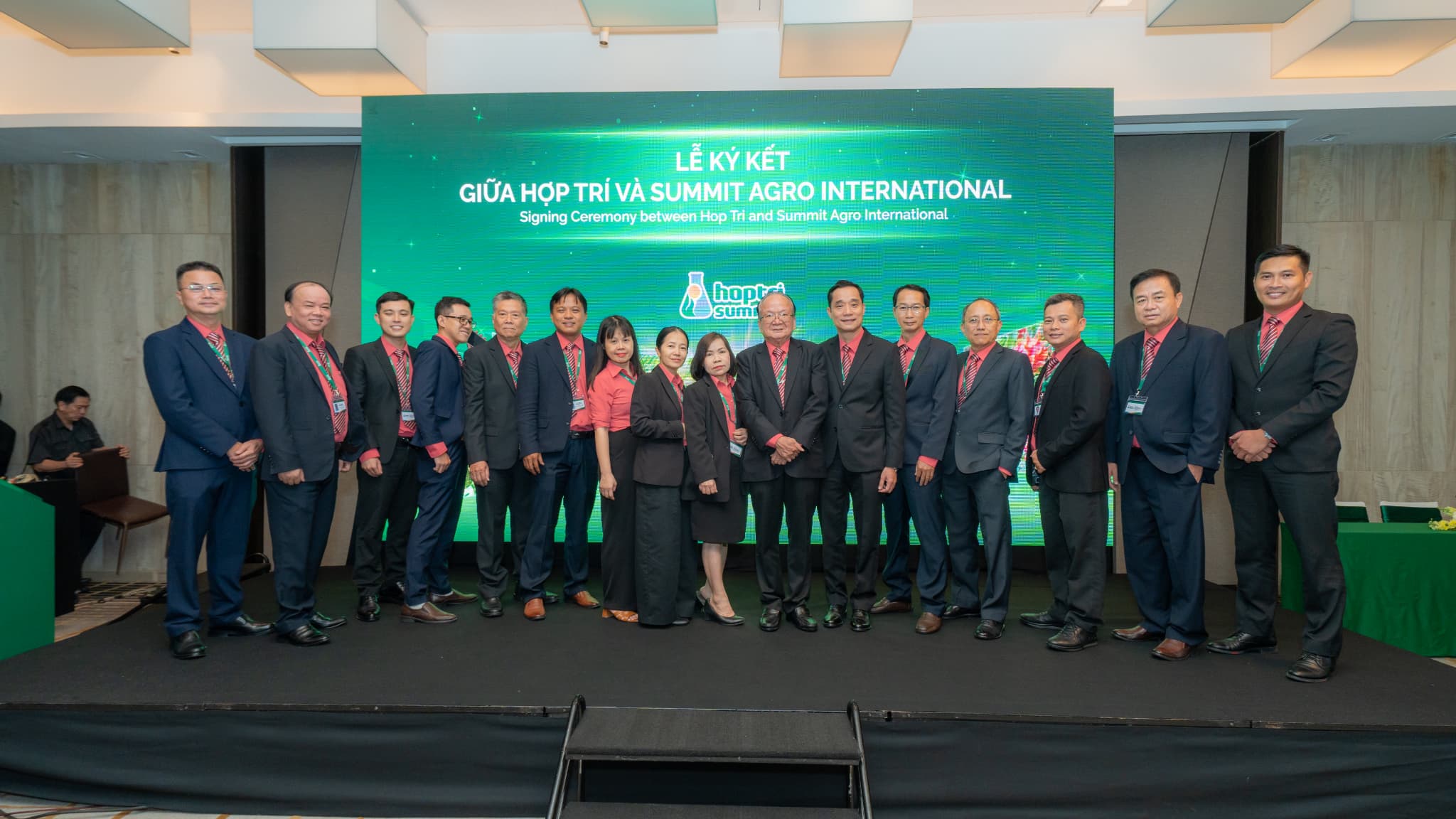
How have your experiences in trade helped you in your current role?
In the past, my role was focused on delivering input from the field and applying it to assigned duties. Now, I need to take a step back and strategically consider the direction Sumitomo Corporation's agribusiness should take. This requires creativity and the ability to create from scratch. My past experiences have honed my ability to structure and understand the industry value chain. The value chain is not linear, but very complex, involving many stakeholders, including manufacturers, trading companies, wholesalers and retailers. Remaining mindful of this complex structure during my trade work as I accumulate experience in the field, common patterns are now visible to me, and I understand the best positioning in the value chain, which often leads to cultivating new business.
Are there any areas of expertise you'd like to develop further?
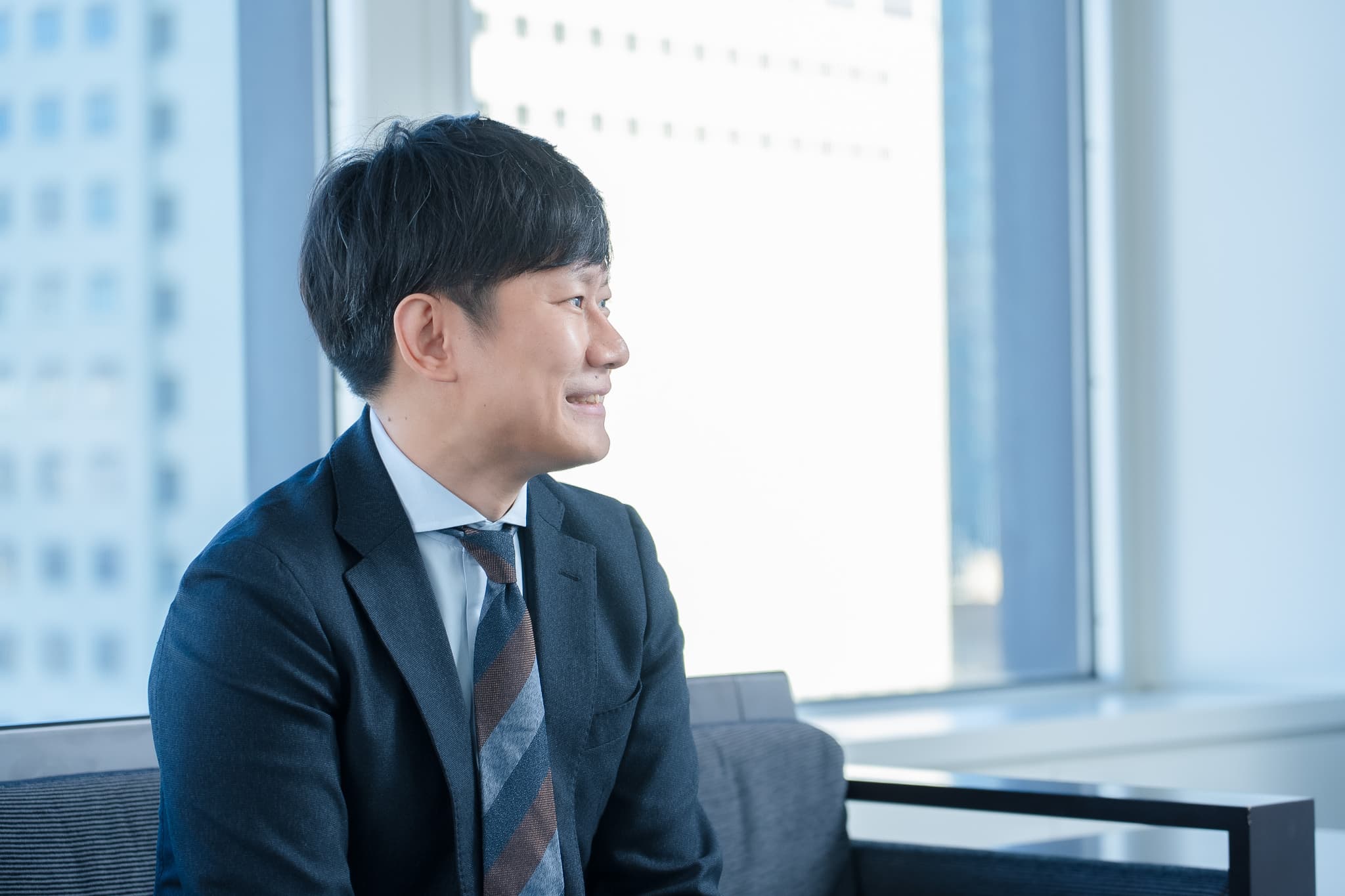
Due to stricter global agrochemical registration systems, creating new products now requires substantial research and development investment. Because of this, agrochemical manufacturers are consolidating through mergers, focusing on environmentally friendly bio-solutions with lower registration hurdles and expanding in related businesses such as seeds. As the entire industry undergoes major changes, Sumitomo Corporation is also strengthening and expanding its agribusiness to stay ahead. Personally, I want to expand my knowledge and experience beyond agrochemicals to include agricultural materials and other related businesses to further develop my strategic thinking and creativity to foster new business.
Agribusiness is essential to society, particularly given increasing demand for food driven by global population growth. In Asia – which has many agricultural powerhouse nations – agricultural productivity is still relatively low. I believe that by leveraging Sumitomo Corporation's expertise, we can contribute to sustainable development in the region. Moving forward, I hope to gain more experience with investment projects and "business turnaround" (business revitalization and management reform) to become a trading company professional playing a role in global market hubs while strengthening the agribusiness worldwide.
